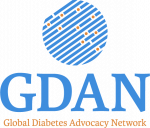
CAPTION: “One in three Singapore citizens at risk of diabetes! – Gan Kim Yong, former Health Minister (Photo: Wikipedia)
A study commissioned by the Health Promotion Board of Singapore and published last year said that “a key risk factor of diabetes in Singapore is a high intake of sugar, particularly from beverages”.
The study was one of the outcomes following Singapore’s ‘War on Diabetes’ campaign, launched by the Ministry of Health in 2016 amid growing concern over the high number of patients. Then Health Minister Gan Kim Yong stated that if nothing was done, one in three Singaporeans would develop diabetes.
One area of concern is the sale of high sugar content beverages in schools. While many countries have introduced soda taxes to try and reduce sugar content in drinks or consumption through increased pricing, another, obvious approach, is being championed.
The call is for a coordinated approach by the Government, schools and parents to eliminate the sale of sugary drinks in schools.
Finding ways to compensate schools who benefit financially from the sales is a matter for Governments to assist. The benefits could be long-term, but where schools have already eliminated sugary drinks from their premises a healthier habit of drinking water to rehydrate has been cultivated with children viewing sugary drinks as an occasional treat.
Meanwhile, Australia’s leading medical body, the Australian Medical Association (AMA) has called on the Government to implement a tax on sugary beverages to combat obesity, diabetes and poor health.

Caption: “Diabetes, obesity and poor vascular health are huge contributors to the burden ob our health system.” AMA President, Omar Korshid
The AMA President, Omar Khorshid, speaking to the Australian Press Club, made the case for a tax that would reduce the consumption of sugary drinks. “More than 2.4 billion litres of sugary drinks are consumed every year in Australia,” he said. “That’s enough to fill 960 Olympic-sized swimming pools.
According to the Australian Bureau of Statistics, an average Australian consumes 60 grams, or 14 teaspoons, of sugar every day. The AMA has proposed that the retail price of sugar-sweetened beverages should increase by 20 percent on average.
Advocacy Action: Do your schools allow the sale of sugary beverages? Could you call for research or draw in existing research to encourage a similar approach? What is the position with sugar taxes in incentives to reduce sugar content and consumption in your country? Is this an issue you could raise?
